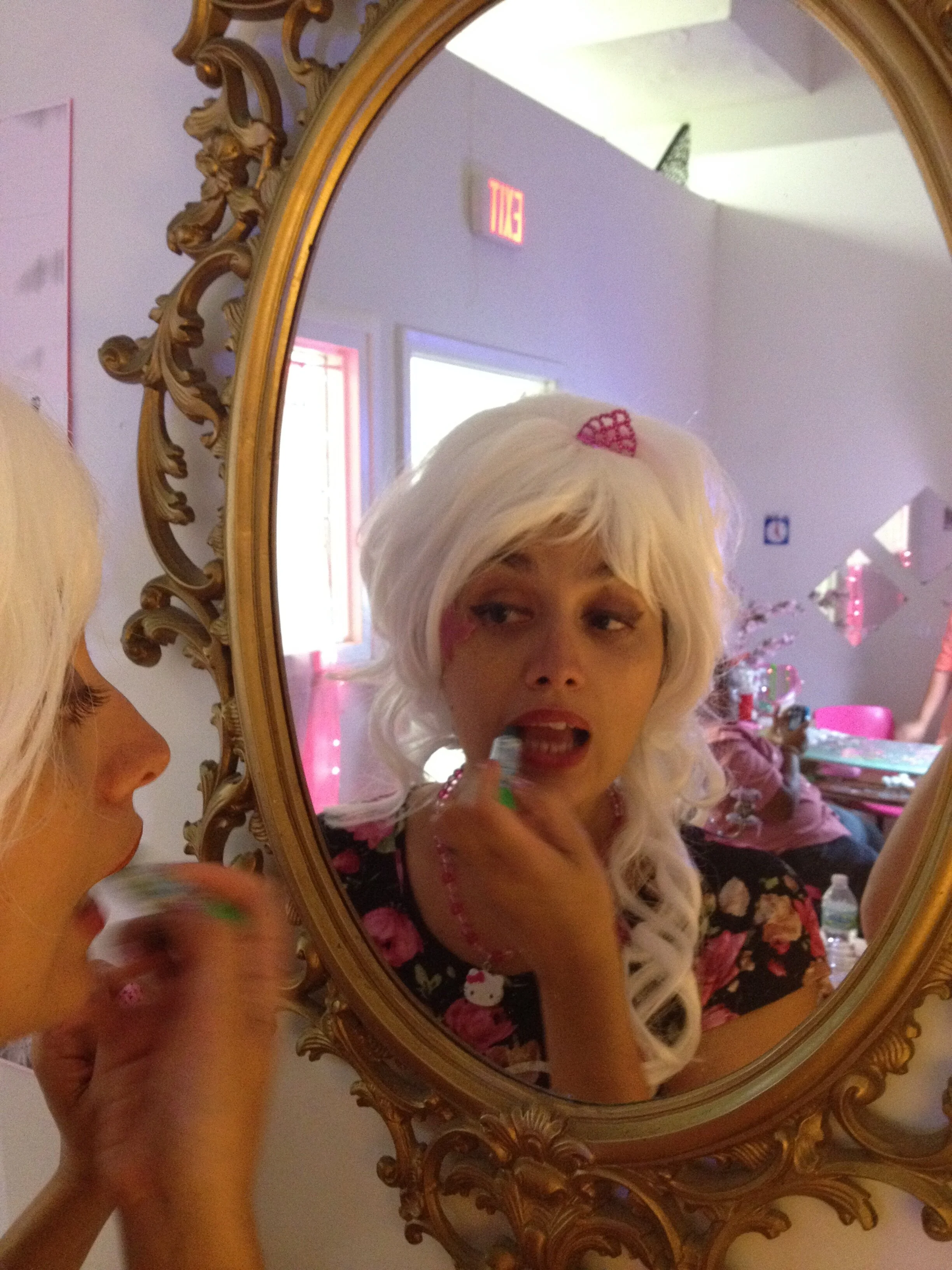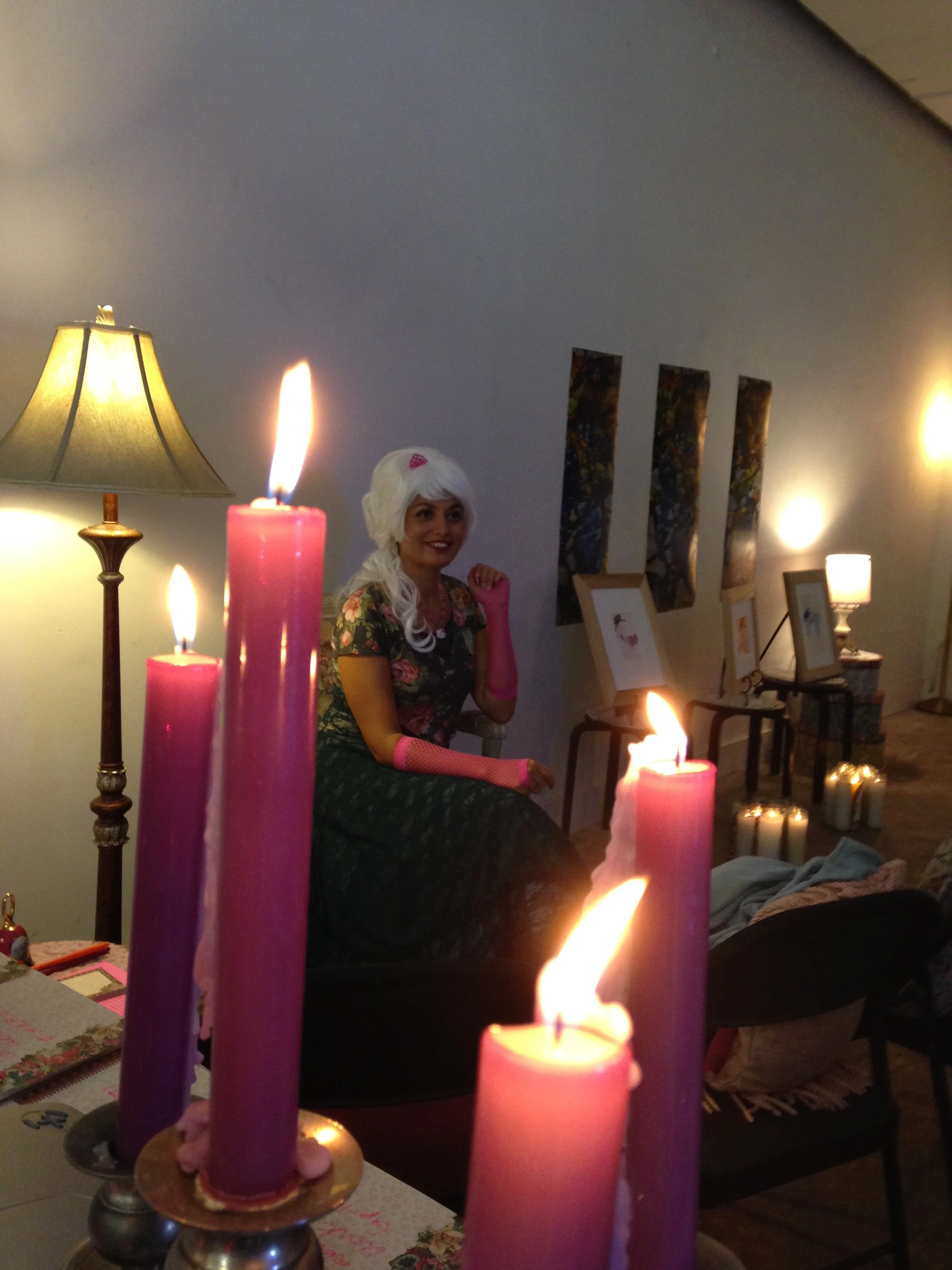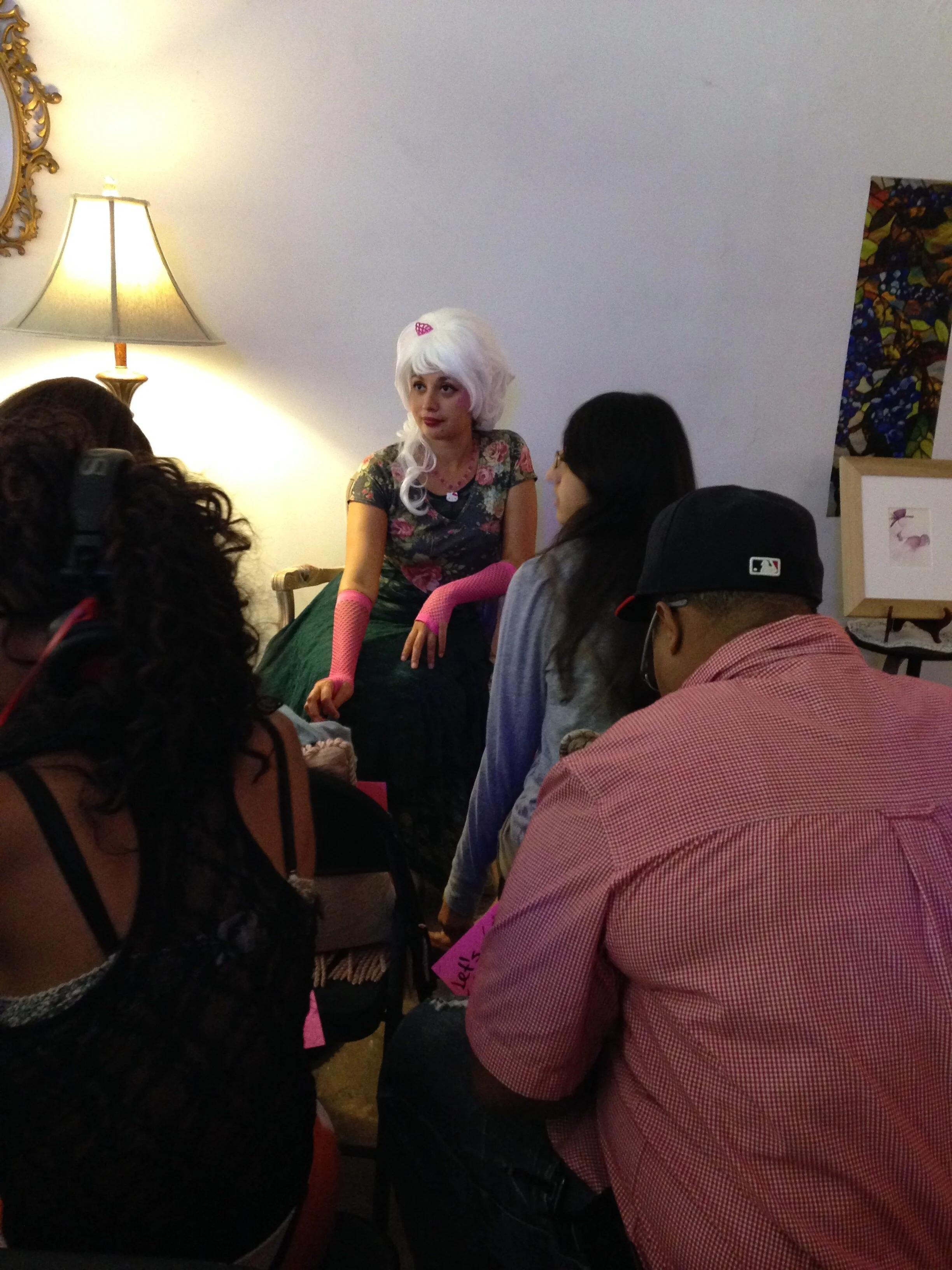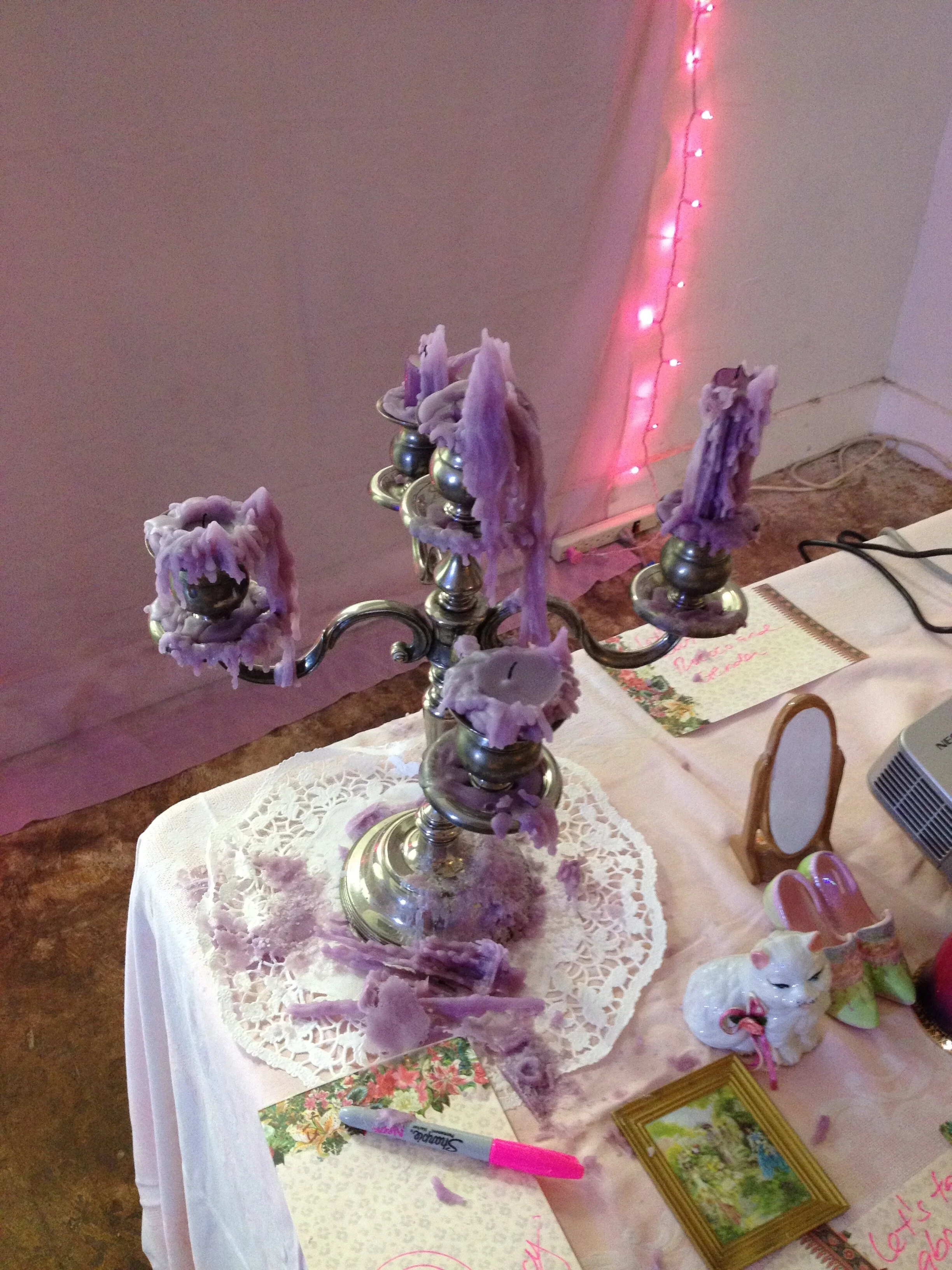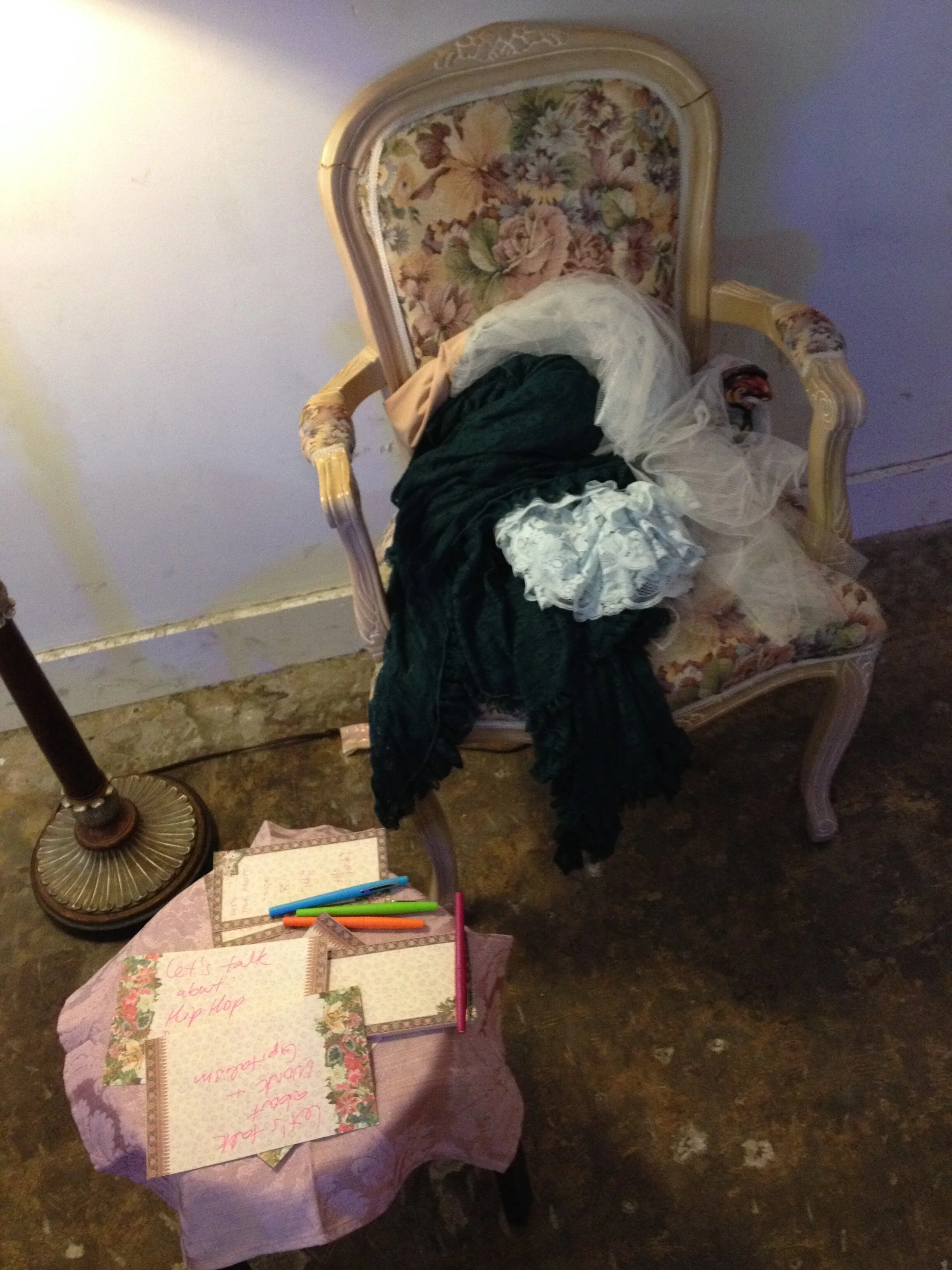About the Project
Let’s Talk About Nicki Minaj: A Rococo Side-Show/Salon, was an ephemeral interactive performance project, exhibition, and happening that took place for one night at the alternative artist-run venue Space Mountain in Miami on July 24, 2014. The project stemmed from my research on the rococo portraits of Nicki Minaj created by Francesco Vizzoli , in which I draw parallels between the critical denigration of the rococo in the 18th century with the contemporary vilification of Minaj’s body. In Let’s Talk About Nicki Minaj, I performed the role of a chusma Latina rococo courteir, dressing myself with a wig and an elaborate, lacey and floral printed gown worn with a punk aesthetic. I situated myself in an installation decorated with collages I created that juxtaposed imagery of Nicki Minaj and rococo ceramics, hung salon-style on the wall adjacent to ornamental mirrors. The space included an ornate floor lamp and candelabra as well as a slideshow of rococo and Minaj imagery projected onto a pink curtain festooned with pink Christmas lights. I created a “salon” in the installation with cushioned chairs arranged in a semi-circle. Posed in a pink, floral-printed rococo styled armchair, I held court through spontaneous conversations with attendees about Nicki Minaj and whatever other issues regarding representation and embodiment they wanted to discuss. I created a set of flash cards that served as conversational prompts to facilitate the exchanges: “let’s talk about race and authenticity”; “let’s talk about excess”; and “let’s talk about girlhood.” Attendees were also encouraged to create their own flash cards with paper and markers that I had laid out in the installation. From another station, I served visitors slices of a pink-frosted cake that read “Beez in the Trap,” which marked the space as one of pleasurable creative labor and invoked the vilified rococo excess of Marie Antoinette--I let them eat cake.
In addition to my performance and installation Let’s Talk About Nicki Minaj, it featured works by artists Rosemarie Romero, Anya Wallace, Kevin Arrow, and Crystal Pearl. Rosemarie Romero presented her Porn Nail$ project, a mobile nail salon that provides free manicures and gossip to clients through Tropi-camp performances, Latina kitsch, and relational aesthetics. This iterated project involves participants in conversations around gender, class, race, women's work and sexuality via aesthetic labor. Anya Wallace presented an altar-like tableaux featuring her series of watercolor paintings titled Eat Purple Pussy (2014), which depict abstracted figures of Black church women in elaborate hats and sexual body positions. The series is inspired by her reflections on the embodied erotics of Black women “catching the spirit” in church as an under-recognized mode of Black feminist freedom in and through spirituality. Kevin Arrow presented a looped video that layered and distorted footage of Nicki Minaj selling her branded merchandise on the Home Shopping Network. The resulting ghostly images of Arrow’s manipulated video generated a haunting and ethereal presence of the rapper in the space.
Crystal Pearl Molinary exhibited several pieces exploring the meaning-making around working-class Latinx body practices such as donning gold chains and leopard print clothing. Included was a photography work Pearl and I collaborated on, titled Ill Fitting, in which we posed in body-shaping undergarments against pink backgrounds to mimic the highly stylized and gender normative “faja” advertisements marketed to Latina women which promise rounder, fuller, and more lifted buttocks, smaller waists, and larger breasts.
The happening was free, open to the public, and promoted through the social networks of participating artists and Space Mountain. In framing the space as a Rococo Side-Show/Salon, I sought to foster an environment in which feminized body practices and popular culture were taken seriously, but where the vibe was not serious. I worked to achieve a balance between celebration and critical exchange, campy performativity and the sharing of personal truths. The salon opened up spontaneous charlas with those who attended on issues like gender and sexuality in hip hop and mass culture, fetishism, race and authenticity, and capitalism and style.


